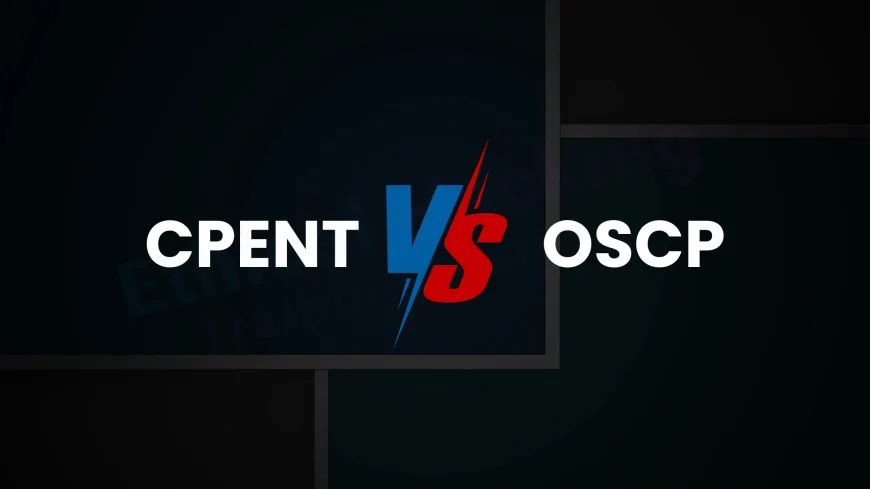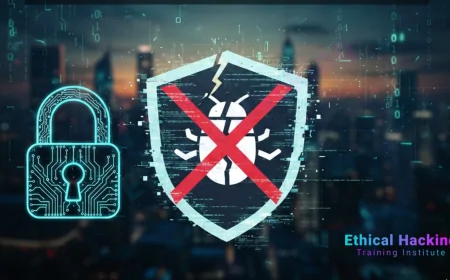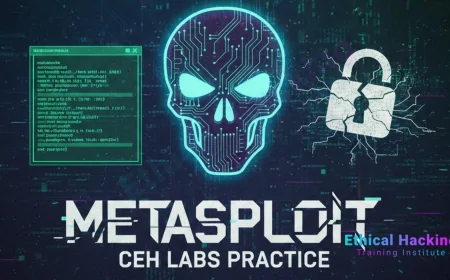CPENT vs OSCP | Which Cybersecurity Certification Should You Choose in 2025?
Confused between CPENT and OSCP certifications? Discover the key differences, career benefits, and training highlights of each to choose the right cybersecurity path. Learn which certification suits enterprise roles or hands-on red teaming, especially if you're training in Pune.

The field of cybersecurity is evolving faster than ever before. With growing threats, data breaches, and rising corporate concerns, professionals with verified offensive security skills are in high demand. Two of the most recognized certifications in penetration testing are CPENT (Certified Penetration Testing Professional) and OSCP (Offensive Security Certified Professional).
While both are valued by employers and respected across the globe, each follows a distinct approach. This blog dives deep into their differences, exam structure, skill sets, career outcomes, and use cases—to help you decide which is the better fit for your cybersecurity career.
What Are CPENT and OSCP?
Let’s begin by understanding the core identity of each certification.
CPENT – Certified Penetration Testing Professional
CPENT is a hands-on penetration testing certification designed to train and assess candidates on advanced, real-world offensive cybersecurity skills. The exam simulates enterprise-level network environments, including multi-layered defenses, pivoting challenges, and Active Directory exploitation.
OSCP – Offensive Security Certified Professional
OSCP is also a performance-based penetration testing certification known for its rigorous exam structure. It emphasizes manual exploitation, deep enumeration, and detailed reporting skills. It gained popularity for setting the benchmark in practical ethical hacking assessments.
Certification Philosophy and Approach
Understanding the intent and philosophy behind each certification can help clarify which suits your professional vision better.
OSCP Focus:
-
Manual techniques over automation
-
Proving concepts through exploit development
-
Deep focus on traditional red team methodology
-
Strong emphasis on Linux-based environments and root access
CPENT Focus:
-
Enterprise-scale simulations
-
Layered security, segmentation, and defense bypass
-
Real-time tactics such as pivoting, privilege escalation, and evading detection
-
Broader scope with Windows, Active Directory, and ICS/SCADA systems
Key Insight:
If OSCP is about demonstrating deep technical control and hacker mindset, CPENT reflects the complexity of modern networks—blending technique with adaptability.
Exam Structure Comparison
| Feature | CPENT | OSCP |
|---|---|---|
| Duration | 24 hours (can be split into two 12-hour blocks) | 24 hours continuous |
| Format | Real-world scenario, fully mapped networks | Point-based system, 5 machines + buffer overflow |
| Delivery | Online proctored, monitored environment | Online proctored via OffSec platform |
| Reporting Required | Yes (detailed report submission) | Yes (technical report mandatory) |
| Exam Retake | 1 free retake (based on score bracket) | Available after cool-off and fee payment |
Note: CPENT offers a unique dual-tier credentialing system—candidates scoring 70% earn the CPENT title, while those scoring 90% or more are awarded the prestigious LPT Master (Licensed Penetration Tester) badge.
Skills Tested
Both certifications go beyond classroom knowledge and test the candidate’s resilience, creativity, and actual problem-solving ability.
Skills Covered in OSCP:
-
Exploitation of vulnerable Linux and Windows machines
-
Manual buffer overflow and exploit development
-
Enumeration, port scanning, and pivoting
-
Scripting custom exploits
-
Weak service exploitation
Skills Covered in CPENT:
-
Web app penetration testing
-
Privilege escalation (Linux and Windows)
-
Active Directory attacks
-
PowerShell exploitation
-
Advanced evasion techniques
-
Binary analysis
-
Attack automation using scripts
-
Wi-Fi and IoT penetration
-
ICS/SCADA network attacks
Observation: CPENT covers a broader surface, while OSCP dives deeper into foundational techniques.
Target Audience
Choosing between CPENT and OSCP also depends on where you are in your career journey.
CPENT Is Best Suited For:
-
Professionals with prior penetration testing experience
-
Red teamers working in enterprise environments
-
Security analysts wanting to move to LPT roles
-
Those targeting government and critical infrastructure domains
OSCP Is Best Suited For:
-
Learners looking to break into cybersecurity
-
Candidates preparing for their first offensive cert
-
Bug bounty hunters, CTF participants
-
Those wanting to demonstrate grit and methodical hacking mindset
Learning Curve and Prerequisites
OSCP:
-
Steep learning curve for beginners
-
Requires strong Linux fundamentals
-
Prepares you to build from scratch
-
Recommended to have experience with Bash, Python, and scripting
CPENT:
-
Suitable for intermediate to advanced learners
-
Requires basic understanding of penetration testing concepts
-
Best when complemented with prior certifications (e.g., CEH, ECSA)
-
Realistic simulations can be mentally demanding and time-intensive
Recognition and Industry Demand
Both CPENT and OSCP are recognized globally, but they appeal to different recruiters and job profiles.
| Criteria | CPENT | OSCP |
|---|---|---|
| Recognition in Govt. Sector | High | Moderate |
| Recognition in Private Sector | High (rising steadily) | Very High |
| Job Roles Unlocked | Penetration Tester, Red Teamer, Security Consultant | Junior Pentester, Security Analyst |
| Industry Reputation | Enterprise-leaning | Hacker-community leaning |
| HR Screening Value | Medium to High | Very High (especially in startups) |
Interesting Insight:
Many hiring managers now prefer candidates who hold both certifications for well-rounded capability—OSCP for raw skill and CPENT for enterprise adaptability.
Real-World Value: What You Learn to Handle
OSCP Prepares You To:
-
Penetrate individual vulnerable machines
-
Solve challenges manually under pressure
-
Perform deep analysis on small networks
-
Script solutions and document effectively
CPENT Prepares You To:
-
Simulate corporate-level breach scenarios
-
Infiltrate segmented networks
-
Execute multi-pivot attacks
-
Handle complex infrastructure like hybrid cloud setups
-
Evade detection systems (SIEM, antivirus, firewalls)
Cert Cost and Validity
| Feature | CPENT | OSCP |
|---|---|---|
| Cost Range | ₹70,000–₹95,000 (approx.) | ₹90,000–₹1,20,000 (approx.) |
| Validity | 3 years | No expiry (lifetime validity) |
| Free Retake Option | Available (under conditions) | Available (paid retake) |
Certification Maintenance and Renewal
-
OSCP: Lifetime certification; no renewal required.
-
CPENT: Valid for 3 years. Can be renewed via CPE credits or re-examination.
Which One Do Employers Prefer?
It depends entirely on the organization type and job description.
Large Enterprises or Govt. Agencies:
-
Often favor CPENT due to its network-based simulation focus
-
Look for candidates who can handle Active Directory and pivoting attacks
Startups, MSSPs, Red Teams:
-
Prefer OSCP due to its high reputation in the hacker community
-
Value problem-solving skills under pressure and deep technical knowledge
Which One Is Harder?
Both are challenging in different ways.
-
OSCP is mentally and technically intense—requires stamina, creative thinking, and perseverance during the 24-hour challenge.
-
CPENT is more strategic and layered—tests knowledge across a wider range of topics in a simulated corporate environment.
Verdict: Neither is easy. Success depends on your mindset, preparation style, and comfort with different threat models.
Tips to Choose Between CPENT and OSCP
-
Are you a beginner looking to prove technical skill? → Start with OSCP
-
Do you want to master enterprise-level attacks and lateral movement? → Go for CPENT
-
Want to work in the public sector or critical infrastructure? → CPENT preferred
-
Focusing on consultancy, red teaming, and bug bounties? → OSCP aligns better
-
Already OSCP certified and want the next level? → CPENT is a solid progression
CPENT vs OSCP: Pros and Cons
CPENT – Pros:
-
Simulates realistic enterprise environments
-
Covers broader attack surface
-
Includes lateral movement, cloud, and IoT
-
Strong government/corporate preference
CPENT – Cons:
-
Can be overwhelming for beginners
-
Narrower community support
-
Reporting takes significant time
OSCP – Pros:
-
Highly respected across industries
-
Strong community, resources, and tools
-
Deep technical focus
-
Lifetime validity
OSCP – Cons:
-
Narrower scope (compared to CPENT)
-
Minimal focus on modern infrastructure
-
High-pressure exam style may not suit everyone
FAQ's
What is the difference between CPENT and OSCP certifications?
CPENT focuses on enterprise-level penetration testing including pivoting, Active Directory attacks, and multi-layered network breaches. OSCP emphasizes manual exploitation techniques, Linux-heavy environments, and foundational ethical hacking. Both are hands-on, but CPENT is broader in scope, while OSCP dives deeper into exploit development and traditional red teaming.
Which certification is more difficult: CPENT or OSCP?
Both certifications are challenging. OSCP is known for its steep learning curve and 24-hour hacking exam. CPENT is equally demanding with complex, real-world simulations that mimic corporate networks. Your preparation, hands-on training from an ethical hacking institute in Pune, and problem-solving ability determine which is harder for you.
Is CPENT better than OSCP for enterprise job roles?
Yes, CPENT often aligns better with enterprise roles due to its emphasis on real-world corporate network simulations, lateral movement, and security evasion. Ethical hacking institutes in Pune offer intensive CPENT training that prepares students for large-scale penetration testing projects found in enterprise environments.
Do ethical hacking institutes in Pune offer both CPENT and OSCP prep?
Yes, many ethical hacking training institutes in Pune provide specialized courses for both CPENT and OSCP. These programs offer lab-based learning, exam simulations, and expert mentoring to prepare candidates for hands-on certification success in cybersecurity roles.
Which is more valued by employers in India: CPENT or OSCP?
OSCP is widely respected in startups and cybersecurity firms for technical depth, while CPENT is preferred by government agencies and large enterprises for its broader, simulation-based approach. Ethical hacking training in Pune can help candidates earn either certification based on their target job market.
What kind of jobs can you get after CPENT certification?
After CPENT certification, candidates can pursue roles like Penetration Tester, Red Team Specialist, Security Analyst, or Network Security Consultant. Training programs in Pune help build practical experience to qualify for such roles, especially in sectors requiring enterprise security assessments.
Is OSCP a beginner-friendly certification?
OSCP is often considered advanced due to its rigorous exam and focus on manual exploitation. However, many ethical hacking institutes in Pune offer beginner-to-pro courses that gradually prepare students for OSCP through foundational hacking skills, scripting, and lab exercises.
What are the prerequisites for CPENT training in Pune?
Most CPENT courses in Pune recommend prior knowledge of ethical hacking, networking, Linux, and Windows systems. Some programs suggest completing a basic penetration testing course first to ensure you’re comfortable with the advanced topics CPENT covers.
How long does it take to prepare for CPENT or OSCP exams?
Preparation time varies, but typically 3 to 6 months of dedicated study and practice is needed. Ethical hacking institutes in Pune offer structured training plans, weekend batches, and real-world labs to help students stay on track and exam-ready.
Which exam offers a free retake: CPENT or OSCP?
CPENT offers a free retake if candidates meet a minimum score threshold, while OSCP requires a full fee for each retake. Pune-based training centers advise students on how to maximize their first attempt through mock exams and personalized coaching.
Can I learn both CPENT and OSCP in a single training program?
Some ethical hacking institutes in Pune offer combo programs or a certification roadmap that includes both CPENT and OSCP. These courses are ideal for professionals seeking a well-rounded offensive security skill set applicable in multiple industries.
Do Pune-based CPENT courses include real-world simulations?
Yes, most CPENT training programs in Pune include hands-on labs and enterprise-grade simulations. These labs replicate real-world challenges like Active Directory attacks, pivoting, and privilege escalation to ensure practical readiness for the certification exam.
How is the exam environment different for CPENT and OSCP?
CPENT allows two 12-hour exam sessions and simulates a live corporate network. OSCP is a 24-hour single-session exam focused on individual machine exploitation. Ethical hacking institutes in Pune provide practice labs tailored to each exam format to help students acclimate.
What reporting skills are needed for CPENT and OSCP?
Both certifications require a detailed report of findings and exploit methods. CPENT emphasizes professional documentation similar to real client deliverables. OSCP expects technically rich, structured write-ups. Pune-based training programs often include modules on penetration testing report writing.
Are there weekend classes available for CPENT or OSCP in Pune?
Yes, many ethical hacking institutes in Pune offer weekend-only classes tailored for working professionals. These weekend batches are designed to accommodate full-time schedules while ensuring sufficient lab hours for both CPENT and OSCP preparation.
Which certification includes cloud and IoT security: CPENT or OSCP?
CPENT includes advanced topics like cloud security, IoT attacks, and SCADA/ICS testing. OSCP focuses more on traditional infrastructure and manual exploitation. Pune training centers offering CPENT prep often highlight these modern attack vectors in their course curriculum.
Is job placement support available after CPENT or OSCP training in Pune?
Many ethical hacking training providers in Pune offer placement assistance, resume building, and interview prep. With certifications like CPENT or OSCP, students gain access to roles in cybersecurity consulting, penetration testing, and red teaming, both locally and internationally.
What tools are commonly used in CPENT and OSCP exams?
OSCP relies heavily on tools like Nmap, Netcat, Burp Suite, and manual scripting. CPENT involves a wider range including PowerShell, Metasploit, BloodHound, Wireshark, and custom scripts. Training in Pune includes extensive tool-based practice for both certifications.
Which certification is better for red teaming: CPENT or OSCP?
CPENT is often preferred for red teaming as it covers lateral movement, multi-vector attacks, and evasion techniques that are common in red team engagements. OSCP provides a strong foundation, but CPENT offers deeper relevance for enterprise-scale offensive operations.
What salary can I expect after CPENT or OSCP certification?
Salaries vary by role, but CPENT-certified professionals often earn between ₹8L–₹15L annually in enterprise and security consulting roles. OSCP-certified candidates can expect ₹6L–₹12L depending on their experience and job profile. Ethical hacking institutes in Pune help align training to lucrative career paths.
Which Cybersecurity Certification Is Better?
The answer depends on your goals, experience level, and target job role.
-
Choose OSCP if you're entering cybersecurity, want to prove your core penetration testing skills, and like working hands-on with Linux and scripts.
-
Choose CPENT if you’re ready for enterprise-level attacks, need to demonstrate versatility in modern IT ecosystems, and aspire to lead red team operations.
Ultimately, both certifications are valuable in their own right. For the best of both worlds, professionals often pursue OSCP first for foundational depth, followed by CPENT for enterprise breadth.
What's Your Reaction?
 Like
0
Like
0
 Dislike
0
Dislike
0
 Love
0
Love
0
 Funny
0
Funny
0
 Angry
0
Angry
0
 Sad
0
Sad
0
 Wow
0
Wow
0















